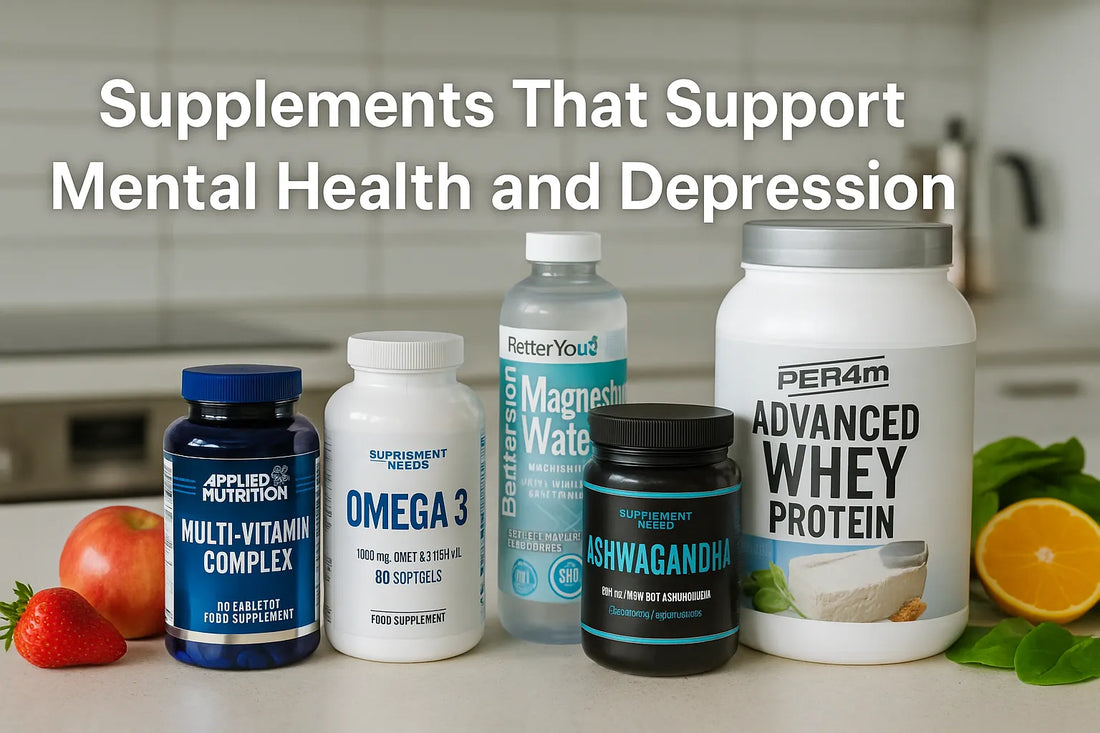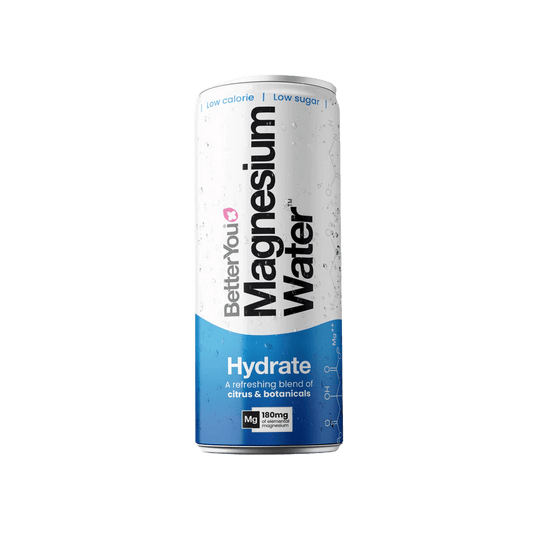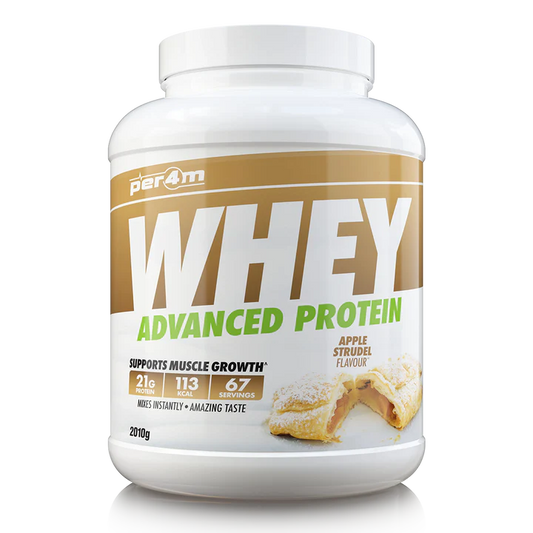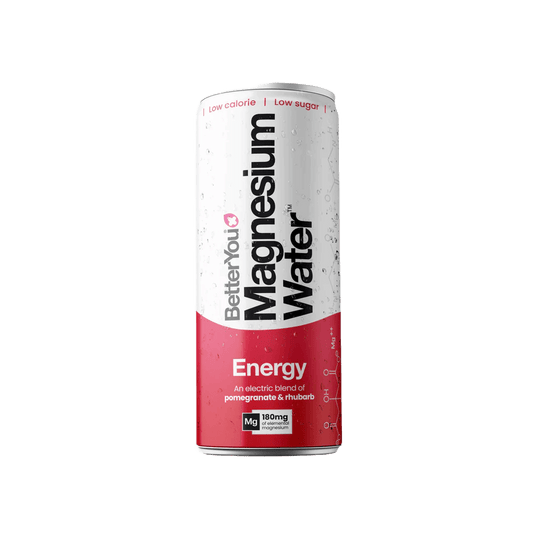Introduction: Why Nutrition Matters for Mental Wellbeing
Mental health has become one of the defining challenges of modern life. In the UK, it’s estimated that 1 in 4 people will experience a mental health issue in a given year, with depression and anxiety among the most common. While therapy, lifestyle changes, and in some cases medication form the backbone of treatment, research is increasingly showing that nutrition plays a powerful role in supporting mood and resilience.
Your brain is an energy-hungry organ. It consumes about 20% of your daily calories, and its chemistry depends on a constant supply of vitamins, minerals, amino acids, and fatty acids. When you’re deficient in even a handful of these building blocks, mood, focus, and motivation can start to slip. Conversely, when nutrition is optimised, many people experience better energy, less stress reactivity, and improved emotional balance.
Supplements aren’t magic pills, but they can close nutritional gaps and provide targeted support for mood and cognition. In this blog, we’ll explore the most effective supplements for mental health and depression, the science behind them, and how they fit into a holistic approach to wellbeing.
1) What Vitamins Are Good for Mental Health and Depression?
Vitamins act like spark plugs for your nervous system. They help neurotransmitters fire correctly, regulate hormones, and even impact sleep quality. When we talk about vitamins for mental health, a few stand out:
-
Vitamin B12 and Folate → Essential for methylation, a biochemical process tied to serotonin and dopamine production. Low levels can cause fatigue, brain fog, and low mood.
-
Vitamin D → Often called the “sunshine vitamin.” Deficiency is linked with higher rates of depression, particularly in winter months when sunlight is scarce.
-
Vitamin C → Not only an immune booster, but also plays a role in reducing cortisol (the stress hormone) and protecting the brain from oxidative stress.
💡 Applied Nutrition Multi-Vitamin Complex provides a balanced daily dose of these core nutrients, making it a convenient base supplement for people who want to cover all angles of mental wellbeing.

2) What Deficiency Causes Depression?
While depression has many causes, nutrient deficiencies are an often-overlooked factor. Research highlights several common deficiencies that are strongly linked to mood disorders:
-
Vitamin D deficiency is perhaps the most famous. Low blood levels are repeatedly associated with higher rates of depression, seasonal affective disorder, and fatigue.
-
Omega-3 fatty acid deficiency is also common, particularly in Western diets low in oily fish. DHA and EPA, two types of omega-3, help regulate serotonin and dopamine activity.
-
Magnesium deficiency affects stress resilience. Without it, the nervous system is more reactive, which can worsen anxiety and mood swings.
-
B vitamin deficiencies (especially B6, B12, and folate) disrupt the production of neurotransmitters like serotonin, dopamine, and GABA.
💡 Supplement Needs Omega 3 and BetterYou Magnesium Water provide two of the most important nutrients people often miss in their diets. Combining these with a daily multivitamin helps reduce the risk of deficiencies contributing to low mood.
3) Can Magnesium Help with Depression?
Magnesium is one of the most underrated nutrients in mental health. It’s often referred to as “nature’s tranquiliser” because it calms overactive nerves and relaxes muscles. But its effects go deeper:
-
Magnesium regulates the HPA axis (hypothalamic-pituitary-adrenal axis), which controls your body’s stress response.
-
It influences the activity of NMDA receptors in the brain, helping to balance excitatory and calming neurotransmitters.
-
Low magnesium has been linked to a higher risk of depression, anxiety, and sleep problems.
For those struggling with restless thoughts at night, magnesium can also improve sleep quality — which in turn has a direct effect on mental health.
💡 BetterYou Magnesium Water makes supplementation simple. Instead of capsules or powders, it’s infused into bottled water, making it easy to stay hydrated while supporting mood regulation.

4) Is Ashwagandha Good for Anxiety and Depression?
Ashwagandha is an adaptogen — a plant-based supplement that helps the body adapt to stress. Its use in Ayurvedic medicine goes back over 3,000 years, and modern research is now validating what practitioners always believed: ashwagandha reduces stress and anxiety.
-
It lowers cortisol levels, which are often elevated in people with chronic stress and depression.
-
It supports the GABA system, promoting calm without sedation.
-
Several clinical trials have shown improvements in anxiety scores, sleep quality, and overall wellbeing after regular supplementation.
For depression, ashwagandha may not act as quickly as medication, but it helps restore balance to stress pathways that contribute to low mood. It’s especially effective when anxiety and stress are the dominant triggers.
💡 Supplement Needs Ashwagandha is a pure, high-quality formula designed for daily use. Many people take it in the evening to encourage relaxation and restful sleep.

5) How to Beat Depression Naturally?
Beating depression naturally doesn’t mean ignoring medical treatment — in many cases, therapy and medication are essential. But lifestyle and supplementation can play a powerful role alongside those tools.
Natural strategies include:
-
Exercise → Regular movement releases endorphins and boosts dopamine sensitivity. Even a 20-minute walk can make a difference.
-
Diet → Whole foods rich in omega-3, magnesium, and B vitamins provide the foundation for stable mood.
-
Sunlight → Exposure to daylight helps regulate circadian rhythm and increase vitamin D.
-
Sleep hygiene → Quality sleep repairs the brain and stabilises neurotransmitters.
On the supplement side, building a supportive stack can make natural recovery easier. For example:
-
Morning: Applied Nutrition Multi-Vitamin Complex for baseline nutrients.
-
Midday: Supplement Needs Omega 3 for brain function.
-
Evening: BetterYou Magnesium Water and Supplement Needs Ashwagandha to relax and reduce stress.
These don’t replace therapy, but they help build resilience so you’re better equipped to manage the daily challenges of mental health.
✅ Recap of Part 1
So far, we’ve explored:
-
The vitamins most critical for mental health.
-
Deficiencies linked to depression.
-
The calming and mood-regulating role of magnesium.
-
Why ashwagandha is a leading natural option for anxiety and stress.
-
How natural strategies — including supplements — can support depression recovery.
Products mentioned from the Uncle Gym range:
- Applied Nutrition Multi-Vitamin Complex
- Supplement Needs Omega 3
- BetterYou Magnesium Water
- Supplement Needs Ashwagandha
🔜 Part 2 will cover:
-
How to improve mental health without medication.
-
Supplements that act like natural antidepressants.
-
The strongest natural mood boosters.
-
Vitamin deficiencies tied directly to depression.
-
Practical supplement stacks for mental wellbeing.
-
FAQ section
Supplements That Support Mental Health and Depression (Part 2)
6) How Can I Improve My Mental Health Without Medication?
Medication can be life-saving for many, but not everyone wants to rely solely on antidepressants or anti-anxiety prescriptions. Improving mental health naturally involves a combination of lifestyle strategies, therapy, and nutritional support.
Lifestyle anchors:
-
Exercise → Regular aerobic exercise (walking, swimming, cycling) boosts serotonin and dopamine. Strength training is also linked with reduced symptoms of depression.
-
Sleep hygiene → Poor sleep is both a cause and a symptom of mental health struggles. Keeping a consistent bedtime and limiting screen exposure can make a difference.
-
Stress reduction → Meditation, journaling, and spending time outdoors reduce cortisol levels.
Nutritional strategies:
-
Focus on nutrient-dense foods like oily fish, leafy greens, nuts, seeds, and lean protein.
-
Reduce refined sugar and alcohol, which can destabilise mood.
-
Use targeted supplementation where diet alone isn’t enough.
💡 Applied Nutrition Multi-Vitamin Complex covers gaps, while Supplement Needs Ashwagandha and BetterYou Magnesium Water add targeted stress and mood support without medication.
7) What Supplement Works Like an Antidepressant?
No supplement should be seen as a replacement for clinical antidepressants, but some do act on similar pathways in the brain.
-
Omega-3 fatty acids (EPA & DHA) → Strong evidence links them to reduced symptoms of depression, particularly EPA.
-
Saffron extract → Clinical trials suggest saffron may work as effectively as certain antidepressants for mild to moderate depression.
-
Magnesium → Supports serotonin balance and reduces stress reactivity.
-
Ashwagandha → Works on the stress response system, which often overlaps with depression.
💡 Supplement Needs Omega 3 is one of the most evidence-backed options, supporting both brain structure and neurotransmitter function in a way that resembles antidepressant pathways.

8) What Is the Most Powerful Natural Antidepressant?
If there’s one contender for the “most powerful natural antidepressant,” it’s omega-3 fatty acids. They literally form part of your brain’s structure, making up cell membranes and helping neurotransmitters communicate effectively. Deficiency can impair this communication and lead to low mood.
That said, different people respond to different natural aids. For stress-driven depression, ashwagandha may feel more effective. For seasonal depression, vitamin D can be life-changing. For fatigue-related low mood, B vitamins often help most.
💡 A well-rounded stack combining Supplement Needs Omega 3, Applied Nutrition Multi-Vitamin Complex, and Supplement Needs Ashwagandha provides support across multiple pathways.
9) What Vitamin Are You Lacking When You’re Depressed?
Several deficiencies can be linked to depressive symptoms:
-
Vitamin D → Linked with serotonin production. People in northern climates often run low.
-
Vitamin B12 → Deficiency causes fatigue, brain fog, and low motivation.
-
Folate (Vitamin B9) → Low folate levels disrupt neurotransmitter synthesis.
-
Magnesium → Deficiency increases stress reactivity.
If your diet is limited or you skip meals, deficiencies are even more likely.
💡 The easiest safeguard is Applied Nutrition Multi-Vitamin Complex, which ensures baseline coverage of these nutrients daily.
10) What’s the Best Natural Supplement for Anxiety and Depression?
There’s no single answer, but a few standouts consistently perform well:
-
Omega-3 → Supports brain function, lowers inflammation, and stabilises mood.
-
Ashwagandha → Calms stress, reduces cortisol, and eases anxiety.
-
Magnesium → Relaxing effect that helps with both anxiety and low mood.
-
B vitamins → Energise the nervous system and reduce fatigue-related mood dips.
For many, a combination approach works best. Imagine starting your day with a multivitamin and omega-3, supporting hydration and stress resilience with magnesium water throughout the day, and using ashwagandha in the evening. This steady support helps stabilise both mood and energy.

🧠 FAQ: Supplements and Mental Health
1. Do supplements really help depression?
They don’t replace therapy or medication, but evidence shows they can significantly reduce symptoms, especially when correcting deficiencies.
2. How long do supplements take to work?
Some, like magnesium, can have calming effects within days. Others, like omega-3 or vitamin D, may take 4–8 weeks to show noticeable benefits.
3. Can supplements replace antidepressants?
No. They can support mood naturally, but clinical depression often requires professional treatment. Supplements are best seen as part of a wider toolkit.
4. Are natural antidepressants safe?
Generally yes, but always check for interactions — especially if you’re already taking prescribed medication.
5. Which supplement is best for stress-driven depression?
Ashwagandha is the leading adaptogen for stress-related mood issues.
6. Should I take supplements every day for mental health?
Yes. Consistency matters more than short-term boosts. Most nutrients need time to build up in the body.
Conclusion: A Nutritional Safety Net for Mental Wellbeing
Mental health is multifaceted, and supplements aren’t miracle cures. But they do provide an important safety net, especially when combined with therapy, exercise, sleep, and social support.
The strongest approach isn’t just taking one pill, but building a stack that covers different areas:
-
Applied Nutrition Multi-Vitamin Complex → fills nutrient gaps.
-
Supplement Needs Omega 3 → stabilises brain chemistry.
-
BetterYou Magnesium Water → calms nerves and reduces stress.
-
Supplement Needs Ashwagandha → combats anxiety and supports recovery.
-
Per4m Advanced Whey Protein → supports overall brain-body energy through amino acids.
Together, they give your brain the building blocks to perform better, stabilise mood, and make it easier to cope with the ups and downs of modern life.





